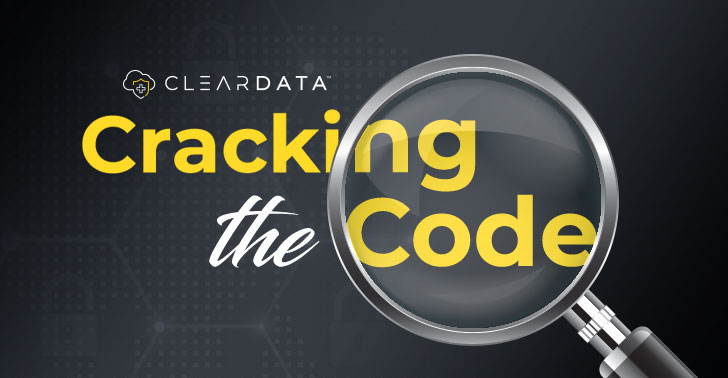In healthcare, running a business is like entering a high-stakes relay race. You might be sprinting forward, trying to outpace competitors and focused on the finish line when suddenly your teammate misses a baton pass. It’s a pivot that requires your team to be agile, synchronized, and prepared to handle the unexpected without losing momentum.
Just like a relay team has to stay ready to respond swiftly to changes, healthcare companies need to stay ready for audits.
Let’s explore the best strategies for streamlining your healthcare cloud compliance efforts, and choosing the right compliance management tools to keep you continuously ready for any audit or pivot that comes your way.

Understanding Healthcare Cybersecurity Audit Preparedness
In a relay race, athletes must be nimble, ready to change direction and adapt to new strategies on the fly. Similarly, businesses must stay agile to navigate one of the strictest business segments: healthcare.
The sensitive nature of healthcare data makes it a prime target for cyber threats, and the regulatory environment is stringent, with laws like the Health Insurance Portability and Accountability Act (HIPAA) and HITRUST setting high standards for data protection. Any breach or non-compliance can have severe consequences, both legally and financially.
You can’t be agile or audit ready without the right systems in place.
Agility in Audit Preparedness
Strong Team Communication – The Key to a Smooth Handoff: In the corporate world, maintaining open lines of communication across all teams involved in cybersecurity and compliance translates to regular team meetings, providing thorough updates, and holding collaborative training sessions to help ensure everyone is on the same page and ready to tackle audits efficiently.
Vigilance and Compliance – The Cornerstones of Security: Running a successful race requires constant vigilance—for healthcare cybersecurity companies, this takes continuous monitoring of cybersecurity threats and staying up-to-date with regulatory compliance in healthcare. Taking a proactive stance not only prepares your healthcare organization for audits, but also fortifies it against potential breaches and data losses.
Dropping the Baton – The Risks of Non-Compliance: In a relay, dropping the baton can cost your team the race. Similarly, failing an audit can have severe repercussions for a business. These consequences can range from damage to reputation and financial losses to severe legal ramifications. The stakes are high, making it imperative for companies to prioritize audit readiness.
7 Actionable Tips for Audit Preparedness
-
- Conduct Regular Internal Reviews: Regular assessments of your compliance status can help identify potential gaps before they escalate into significant issues. Establish a routine for internal audits, ensuring that all systems and processes align with current regulatory standards.
-
- Implement Compliance Management Tools: Leveraging technology can significantly ease the burden of compliance. Compliance management tools offer automation capabilities that streamline processes, enhance accuracy, and reduce the likelihood of human error. These tools can track regulatory changes, generate compliance reports, and maintain audit trails, making them indispensable for any healthcare provider.
-
- Develop a Proactive Compliance Culture: Cultivating a culture that prioritizes compliance is essential. Encourage staff to stay informed about the latest regulations and best practices in cybersecurity. Provide regular training sessions to ensure everyone understands their roles and responsibilities in maintaining compliance.
-
- Utilize Cloud Security Solutions: As healthcare organizations increasingly adopt cloud solutions, ensuring robust cloud security is crucial. Implement security measures such as encryption, multi-factor authentication, and regular security audits to protect sensitive data stored in the cloud.
-
- Engage Third-Party Experts: Sometimes, external guidance can provide a fresh perspective on your compliance efforts. Consider engaging cybersecurity consultants or legal advisors who specialize in healthcare to conduct thorough audits and offer recommendations for improvement.
-
- Utilize Technology: Leverage advanced software solutions for monitoring and reporting. Automated systems can provide real-time data and insights, making it easier to address issues promptly.
-
- Document Everything: Keep detailed records of all security measures, updates, and compliance checks. This documentation is invaluable during an audit, providing proof of due diligence and preparedness.
Reducing Audit-Related Burdens
Preparing for audits can be a resource-intensive process. By automating routine tasks, healthcare organizations can significantly reduce the manual workload associated with audits. Automation not only saves time but also ensures that compliance processes are consistent and reliable—which is critical in an audit.
Moreover, by adopting a proactive approach and conducting regular internal reviews, organizations can minimize the stress and pressure of last-minute audits. This forward-thinking approach allows healthcare providers to address potential issues early, ensuring smoother audit experiences.

Embracing Continuous Compliance
In short, just like a relay team needs every team member to play their role in a first-place finish, healthcare IT teams need comprehensive compliance and security cloud audit preparedness strategies. With real-time insights into your compliance status, enabling quick corrective actions when deviations are detected, compliance management tools also facilitate seamless documentation and reporting, which are crucial components of any audit process—and are far too time-consuming to complete fully manually.
By adopting a strategic approach that includes regular internal reviews, leveraging compliance management tools, and fostering a compliance-oriented culture, organizations can navigate the complexities of healthcare cloud compliance with confidence. It’s how healthcare IT teams can protect their operations, improve their compliance posture, and enhance the trust and safety of their patients.
Ready to take the next step toward continuous compliance in the cloud? Speak with a healthcare cybersecurity and compliance expert today.
FAQ
Why is healthcare audit preparedness essential for organizations?
Healthcare audit preparedness is critical because the healthcare sector is highly regulated, with strict standards like HIPAA and HITRUST. Non-compliance can lead to severe financial, legal, and reputational consequences. Preparing for audits ensures that organizations maintain robust security and compliance measures, reducing risks associated with breaches and regulatory penalties.
What tools can help streamline healthcare audit processes?
Compliance management tools can significantly streamline the audit process. These tools automate routine compliance tasks, monitor regulatory changes, generate reports, and maintain audit trails, reducing the workload and minimizing human error. Additionally, cloud security solutions, like encryption and multi-factor authentication, enhance data protection for healthcare providers.
How can healthcare organizations foster a culture of compliance?
Fostering a proactive compliance culture involves regular staff training, keeping teams informed about the latest cybersecurity regulations, and encouraging open communication across departments. By making compliance a priority throughout the organization and conducting regular internal reviews, healthcare providers can better prepare for audits and reduce risks related to non-compliance.
Ready to elevate your healthcare cloud compliance?



